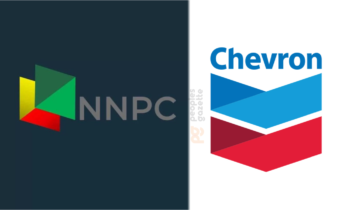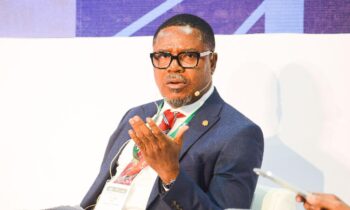The investment that has eluded the Nigerian oil and gas industry for years, thereby affecting crude oil production, may have started trickling– in again, as Chevron Nigeria Limited (“CNL”) and the Nigerian National Corporation NNPC joint venture have confirmed that $1.4 billion has been secured to finance some of their projects.
This amount is to be used by the NNPC/CNL JV to fund infill drilling program or projects for the fiscal years 2023-2026 The financing arrangement was executed on Wednesday, November 30, 2022.
The Project includes the drilling of 37 wells in the offshore and onshore Escravos area. It will also help to monetize reserves and increase production by arresting decline and supporting domestic gas supply.
The Project is in alignment with the NNPC/CNL JV’s lower carbon ambitions and helps support a lower carbon future through increased gas resources for commercialization.
The NNPC/CNL JV recognizes the strategic imperative to supplement funding of the NNPC/CNL JV operations to enable high impact projects that can deliver near term production.
According to a press release signed byE.O. Brikinn, General Manager, Policy, Government and Public Affairs, Chevron Nigeria Limited, he said, the NNPC/CNL JV is one of the largest producers and investors in Nigeria. CNL has operated in Nigeria for more than 60 years and we are committed to supporting the country in developing its energy resources for the benefit of its people.
“CNL puts people at the center of the energy conversation because it understands that the well-being of people everywhere depends on energy – energy that is affordable, reliable, and ever cleaner to enable human progress.”
The absence of long-term investment in the oil and gas sector as well as insecurity should be blamed for Nigeria’s current low crude oil production.
This development was responsible for the inability of Nigeria to meet the Organisation of the Petroleum Exporting Countries (OPEC) quota in recent times.
Although Nigeria’s OPEC production quota is pegged at 1.8 million bpd, but in the last few years, the country has struggled between 1.3 and 1.4 million bpd.
The speed with which International Oil Companies (IOCs) and other investors were withdrawing investments in hydrocarbon exploitation had further contributed significantly to Nigeria’s underperformance.

The rate at which investments were taken away was too fast. Lack of investment in the oil and gas sector contributed to Nigeria’s inability to meet OPEC quota. We are not able to get the needed investments to develop the sector and that affected the country.
Security challenges are another major factor that contributed to the lack of significant growth of the sector in the country just as the drive towards renewable energy by climate enthusiasts had discouraged funding for the sector.
Some industry operators have described this development as a positive one for the industry and economy of the country.
According to some of the industry stakeholders, this would stimulate some level of employment which will have a multiplier effect on the economy.
It is also a sign of confidence in the Nigerian environment by Chevron, a situation the said may encourage other international oil companies IOCs to also begin to consider investing in their assets





